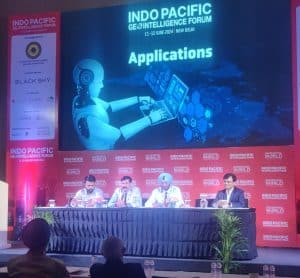Biden Administration has made an announcement of a multimillion dollar support for one of the most integral component to all American’s life – the nation’s highway and transit systems on Wednesday, August 10th. The U.S. Department of Transportation’s Federal Highway Administration (FHWA) and Federal Transit Administration (FTA) together awarded $49.2 million in innovative technology grants to improve mobility and multimodal connections in this sector. The impact of the ground level applications of these grants are far reaching as they may range from advanced technology inclusions to ensure road safety through detection and prevention of wrong-way crashes, improvements in trucking operations and terminal operator activities at a port.
10 projects using advanced intelligent transportation systems (ITS) technologies that improve mobility and safety, reduce congestion and support underserved communities were recipients of the award of $45.2 million in Advanced Transportation and Congestion Management Technologies Deployment (ATCMTD) by the FHWA. The FHWA’s ATCMTD program funds early deployments of forward-looking technologies that can serve as national models.
Nine transit agencies and organizations in six states and the District of Columbia were awarded $4 million by the FTA in Enhancing Mobility Innovation (EMI) grants to improve access and mobility for transit riders. The FTA’s EMI program supports innovations that make better options available for transportation encourage people to ride transit, such as integrated fare payment systems and user-friendly apps for on-demand public transportation.
U.S. Transportation Secretary Pete Buttigieg said at the announcement of this grant “With these grants, the Biden-Harris Administration is helping communities deliver modern transportation systems that connect people to where they want to go more affordably, efficiently, and safely”. “We’re pleased to support these innovative solutions that will improve driving and public transit for Americans in urban, suburban, and rural areas alike.”
New and emerging technologies define the future of transportation as they enlarge and make available many more options to positively influence everyone while holding on to the maximum levels of road safety. The need to provide accurate geospatial data is gaining greater momentum to better the overall understanding of mobility patterns. The new trends encompassing the mobility sector would be of great interest to the geospatial industry as its related technologies embed advanced analytics and visualization enabling smarter transportation.
Every aspect of the transportation sector is driven by location – connected vehicles, car insurance, parking fees and management, toll collection systems, transit accessibility and many more and so there is growing need for well integrated mapping tools to aid required data analysis.
The quality of the transportation system wields strong influence on a region’s industrial and employment base and can hugely improve overall economic productivity in any region. Good, dependable transportation infrastructure allows businesses to receive inputs to production facilities and to transport finished goods to market in an efficient manner. Economic impacts arising from such improved linkages will yield significant effects on the overall U.S. economy, the standard of living of U.S. citizens, and the competitiveness of U.S. industry. In many ways the nation’s highway and transit system have democratized mobility in the United States, empowering virtually all Americans with the ability to travel efficiently to any destination throughout the nation, inexpensively, and at whatever time or date they desire.
This week’s announcement would certainly generate keen interest amongst all concerned stakeholders as a modern, efficient highway and transit system are essential to meet the needs of the nation’s people, strengthen the economy, and enhance national security.









